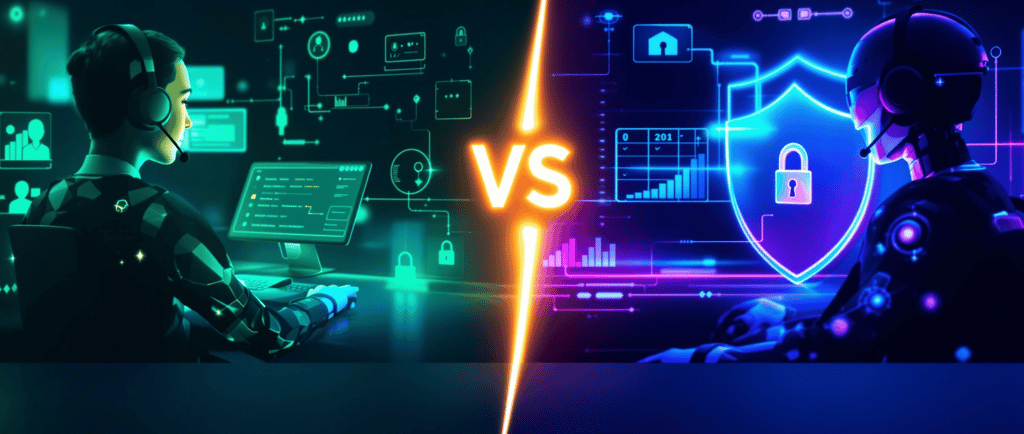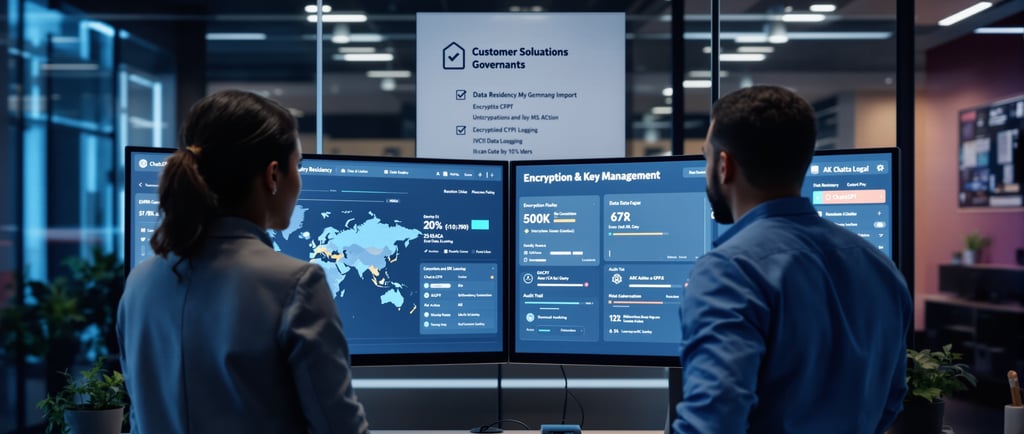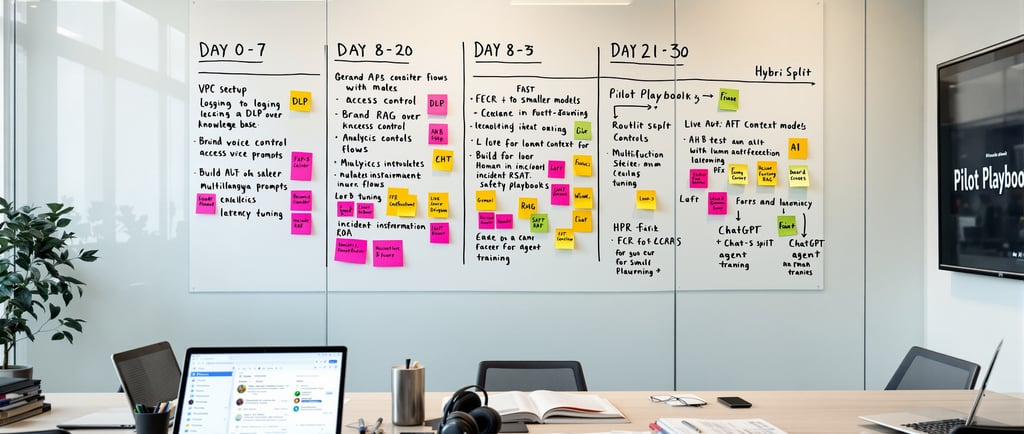ChatGPT vs Gemini: Which AI Chatbot Wins for Customer Support and Data Privacy
Discover in our comprehensive guide which AI chatbot, ChatGPT vs Gemini, best enhances customer support and data privacy for your business needs in 2025.
9/3/20255 min read


ChatGPT vs Gemini: Which AI Chatbot Wins for Customer Support and Data Privacy
chatgpt vs gemini for customer support and data privacy in 2025: this guide compares strengths, trade-offs, pricing, and security so you can launch a reliable AI chatbot with confidence. You’ll see where each platform excels, how they integrate with your stack, and what to test in a 30-day pilot.
What Leaders Need From AI Customer Support in 2025
Customer service leaders care about outcomes, not hype. Prioritize:
North-star metrics: First Contact Resolution (FCR), Average Handle Time (AHT), Customer Satisfaction (CSAT), deflection rate, and Net Promoter Score (NPS).
Compliance: GDPR, CCPA, SOC 2, ISO 27001, HIPAA, and PCI—plus auditability and data residency controls.
Scale and predictability: high concurrency, uptime, transparent SLAs, and budget control.
Brand voice, accessibility, and true multilingual conversation quality across messaging channels.
ChatGPT vs Gemini at a glance: models, plans, ecosystems
Both platforms sit on powerful neural networks and deep learning stacks, but the ecosystems differ:
ChatGPT: Fast, fluent conversation and strong tool use, function calling, and structured outputs (JSON). Broad ecosystem with OpenAI APIs, real-time agent assist, and content workflows. See ChatGPT Enterprise for privacy and admin features.
Gemini: Excellent long-form context tracking and multimodal inputs (text, images, video). Deep integration with Google’s AI cloud (Vertex AI, AI Studio), Gmail, Drive, and Search. See Gemini model docs for context windows up to 1M tokens.
Deployment options include SaaS and VPC/private cloud connectors. Both offer enterprise tiers, SLAs, version pinning, and change logs to maintain stable support flows.
Data Privacy & Security: Head-to-Head
Data residency, retention, and isolation: Both offer configurable data residency, retention windows, and isolation, with admin controls to align with GDPR/CCPA and sector-specific requirements.
Encryption, key management, BYOK/KMS: In transit and at rest encryption are standard. Gemini leverages Google Cloud KMS and VPC options; ChatGPT provides enterprise-grade encryption and supports bring-your-own-key strategies.
Training data usage and zero-logging modes: ChatGPT emphasizes opt-outs for training and zero-data-logging modes. Gemini provides comparable settings within Google’s governance frameworks.
Admin controls and audits: Both provide PII redaction, audit trails, fine-grained access policies, and logging suitable for regulated industries.
Customer Support Capabilities and Conversation Quality
RAG and knowledge grounding: Gemini shines with retrieval-augmented generation on large knowledge bases; ChatGPT also supports robust RAG pipelines.
Reasoning and structure: ChatGPT is excellent at step-by-step reasoning, tool use, and consistent JSON responses for downstream automation.
Tone and brand control: Both can follow brand style guides with system messages and guardrails for safe messaging and empathy.
Multilingual, multimodal conversation: Gemini’s multimodal is strong for document/image analysis; ChatGPT’s text conversation and language understanding are fast and fluent.
Integrations, Channels, and Platform Fit
CRMs and ticketing: ChatGPT integrates well with Zendesk, Salesforce, Intercom, and Freshdesk. Gemini fits natively with Google Workspace and Vertex AI.
Messaging and chat: Both support web chat, Slack, Teams, WhatsApp, SMS, and Messenger for real-time communication and messaging.
Voice and telephony: IVR and telephony via Twilio with speech recognition, voice recognition, speech synthesis, and call summaries.
Knowledge bases: SharePoint, Google Drive, Confluence, and custom knowledge base connectors for RAG.
Speed, Latency, and Reliability Under Load
Performance: ChatGPT typically responds faster (around 1.2s) and handles concurrency spikes gracefully. Gemini is slower under load (~2.5s) but stronger on huge, multimodal inputs.
Techniques: Both support streaming responses, caching, and fallback models for uptime and reliability.
Cost, Pricing, and ROI
Token pricing and model mix: ChatGPT’s tiering makes it easy to route simple intents to smaller models for triage and escalate to larger models for resolution, optimizing cost-per-resolution.
Total cost of ownership: Consider build, compliance, monitoring, analytics, and maintenance—especially when using Google Cloud services with Gemini.
ROI levers: Lower AHT, higher deflection, better CSAT, and stronger agent assistance.
For content operations and support automation, consider repurposing how-to articles and FAQs into short clips to boost deflection. If you need help, see our Short-Form Video Repurposing service.
Accuracy, Safety, and Guardrails
Policies: Prompting policies, system messages, and policy enforcement are robust on both platforms.
Moderation and PII: Content moderation, PII detection, and redaction pipelines minimize risk.
Evals: Maintain golden sets, regression tests, and drift alerts to sustain quality over time.
Evaluation Plan: How to Test for Your Use Case
Scenarios: Intent routing, refunds, account access, shipping, outages, and escalations.
Grounded vs open: Compare knowledge-grounded Q&A against open-ended conversation.
Agent assist: Ticket summarization, next-best action, macro suggestions, and predictive text.
Experimentation: A/B test with human-in-the-loop QA and scorecards for FCR, AHT, CSAT, and compliance.
Privacy-Critical Workflows for Finance and Crypto
Compliance: KYC/AML, audit logs, risk scoring, and data isolation in decentralized contexts.
Exchange support: Wallet recovery, transaction disputes, and fee explanations with clear, policy-compliant responses.
Education: FAQs across bitcoin, ethereum, litecoin, liquidity, and trading workflows.
Security: Protect keys, addresses, and transaction privacy with strict access policies and VPC routing.
Pros and Cons: ChatGPT for Customer Support
Strengths
Fast responses and resilient under heavy traffic.
Great at structured outputs (JSON), stepwise reasoning, and function calling for automation.
Mature ecosystem for real-time agent assistance, ticket summarization, and tone control.
Limitations
Smaller context window (often up to 128K tokens) compared to Gemini’s million-token options.
Requires careful governance for sensitive data (use enterprise privacy features and zero-logging modes).
Best fit
High-volume conversational agents, content-driven support, and non-Google stacks.
Pros and Cons: Gemini for Customer Support
Strengths
Long-context, multimodal understanding across text, images, and video.
Deep integration with Google Cloud (Vertex AI, AI Studio), Search, Gmail, and Drive.
Strong for technical, complex dialogues and large document analysis.
Limitations
Slower average latency under peak loads.
Ecosystem and policies may favor Google-native environments.
Best fit
Enterprises standardized on Google Cloud with multimodal, long-document use cases.
Decision Guide: When to Choose Each
Choose ChatGPT if your team needs speed, broad integrations (CRMs, messaging), creative conversation, and strong JSON/tooling for programmatic automation.
Choose Gemini if you prioritize multimodal analysis, 1M-token context, Google service integration, and complex technical workflows.
Hybrid: Route by task, confidence, and data sensitivity—use Gemini for long-form, technical RAG; use ChatGPT for fast triage and fluent dialogue.
Implementation Blueprint: 30-Day Pilot to Production
Day 0–7: Define KPIs (FCR, AHT, CSAT, deflection), draft conversation design, set up VPC, logging, DLP, and access control.
Day 8–20: Build RAG over your knowledge base, add brand voice, test multilingual flows, and instrument analytics and live metrics.
Day 21–30: Run A/B tests, tune prompts and safety, finalize incident playbooks, and train agents on escalation paths.
Need structured FAQs and onboarding content? Our AI Product Chatbot and Wellness Score tools can jumpstart your knowledge base and triage flows.
RFP and Vendor Questions
Security, data privacy guarantees, and audit evidence (SOC 2, ISO 27001, HIPAA, PCI).
Performance SLAs, latency, throughput limits, and regional routing.
Pricing models, model availability, roadmap stability, and version pinning.
Exit strategy, data portability, lock-in risk, and BYOK/KMS options.
Tech terms checklist (so you can brief stakeholders quickly)
Conversation, messaging, chatting, dialogue, dialogue system, user experience, user interface, conversational AI, conversational agents, virtual assistant, digital assistants, assistants, bot, automation, NLP, natural language processing, language understanding, speech recognition, voice recognition, speech synthesis, multimodal, knowledge base, big data, data processing, algorithm, language model, neural networks, deep learning, predictive text, suggestions, personas, personality, innovation, programmatic workflows, and machine learning—all play a role in building helpful, brand-safe support interactions from text to voice.
Bottom line
In the chatgpt vs gemini decision, choose the platform that best fits your stack, compliance profile, and customer expectations. ChatGPT wins for speed, JSON/tooling, and broad integrations; Gemini wins for long-context, multimodal analysis, and Google-native ecosystems. Many teams succeed with a hybrid approach that routes by task, confidence, and sensitivity—delivering faster response times, safer communication, and measurable gains in CSAT and deflection.




